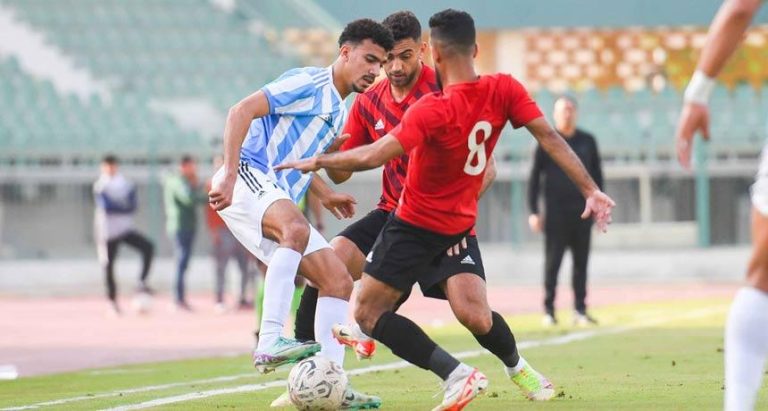Just four clubs vote in favor of the reduction in the number of clubs in Serie A
Following a shareholders’ meeting in Milan, Serie A clubs collectively decided to maintain the current format of the Italian top division, with 20 clubs participating. The proposal to reduce the number of clubs to 18 was put forward by some of the top clubs in Serie A, including Juventus, Inter Milan, AC Milan, and AS Roma. However, only four clubs voted in favor of the reduction, falling short of the required majority of 14 votes needed to pass the reform. Consequently, the number of clubs in Serie A will remain at 20, a configuration that has been in place since the 2004/05 season.
The rationale behind the proposed reduction was aimed at optimizing the quality of football by minimizing the number of games played. Proponents of the change argued that a smaller league would lead to higher competitiveness and better performance standards. However, despite the support from influential clubs, the proposal did not garner sufficient backing to effectuate the alteration.
In addition to the decision regarding the number of clubs, Serie A clubs also approved a set of reforms that will be presented at the upcoming Extraordinary General Assembly of the Italian Football Federation (FIGC) scheduled for March. These reforms aim to enhance the autonomy of Serie A, mirroring the structure seen in the Premier League in England.
Lega President Lorenzo Casini emphasized the importance of granting Serie A greater autonomy and decision-making authority, particularly concerning economic matters. Currently, Serie A feels constrained by the existing framework, which limits its ability to make independent decisions commensurate with its economic significance within Italian football. The desire for increased autonomy reflects a broader push among Serie A clubs to assert greater control over their financial and operational affairs.
The discussion around league autonomy underscores the evolving dynamics within Italian football and the desire for Serie A to have a more prominent role in shaping its future. By seeking greater independence from the FIGC, Serie A aims to align its governance structure more closely with that of other top European leagues, such as the Premier League. This move signifies a shift towards a more decentralized model, where Serie A clubs have greater influence over key decisions affecting the league’s direction and competitiveness.
Ultimately, while the proposal to reduce the number of clubs in Serie A did not materialize, the approval of reforms aimed at enhancing autonomy signals a step towards a more empowered and self-governing Serie A. As the league continues to navigate the complexities of modern football, these developments reflect a concerted effort to adapt and thrive in an increasingly competitive and dynamic landscape.
Following a shareholders’ meeting in Milan, Serie A clubs collectively decided to maintain the current format of the Italian top division, with 20 clubs participating. Here are some key points and context surrounding the decision:
- Vote Outcome: The proposal to reduce the number of clubs to 18 was put forward by some of the top clubs in Serie A, including Juventus, Inter Milan, AC Milan, and AS Roma. However, only four clubs voted in favor of the reduction, falling short of the required majority of 14 votes needed to pass the reform.
- League Configuration: Consequently, the number of clubs in Serie A will remain at 20, a configuration that has been in place since the 2004/05 season. This decision maintains the status quo of the league structure, despite calls for change from certain quarters.
- Rationale for Reduction: The rationale behind the proposed reduction was aimed at optimizing the quality of football by minimizing the number of games played. Proponents of the change argued that a smaller league would lead to higher competitiveness and better performance standards.
- Rejection of Proposal: Despite the support from influential clubs, the proposal did not garner sufficient backing to effectuate the alteration. This highlights the diversity of opinions within Serie A and the challenges associated with implementing significant structural changes.
- Approved Reforms: In addition to the decision regarding the number of clubs, Serie A clubs also approved a set of reforms that will be presented at the upcoming Extraordinary General Assembly of the Italian Football Federation (FIGC) scheduled for March. These reforms aim to enhance the autonomy of Serie A, mirroring the structure seen in the Premier League in England.
- Desire for Autonomy: Lega President Lorenzo Casini emphasized the importance of granting Serie A greater autonomy and decision-making authority, particularly concerning economic matters. Currently, Serie A feels constrained by the existing framework, which limits its ability to make independent decisions commensurate with its economic significance within Italian football.
- Alignment with Premier League Model: The discussion around league autonomy underscores the desire for Serie A to have a more prominent role in shaping its future. By seeking greater independence from the FIGC, Serie A aims to align its governance structure more closely with that of other top European leagues, such as the Premier League.
- Significance of Autonomy: This move signifies a shift towards a more decentralized model, where Serie A clubs have greater influence over key decisions affecting the league’s direction and competitiveness. It reflects a broader push among Serie A clubs to assert greater control over their financial and operational affairs.
- Adaptation and Thriving: Ultimately, while the proposal to reduce the number of clubs in Serie A did not materialize, the approval of reforms aimed at enhancing autonomy signals a step towards a more empowered and self-governing Serie A. As the league continues to navigate the complexities of modern football, these developments reflect a concerted effort to adapt and thrive in an increasingly competitive and dynamic landscape.
Football Full Results | Schedule








